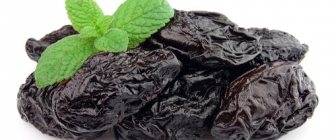There are two types of sunflower oil: refined and unrefined. Each is used in its own way: deodorized is more suitable for frying, unrefined is used in salads because it has a rich taste and unique aroma.
The methods for producing oils differ. Resistance to oxidative processes, and therefore shelf life, depends on the degree of purification. Refined oil is less capricious to conditions. Fragrant things are afraid of light and spoil faster. Each variety has its own nuances, knowing which you can store sunflower oil for a long time without fear that it will go rancid.
How to properly store different types of sunflower oil
There are 2 types - refined (odorless) and unrefined (odorous). The first option undergoes various cleanings, the second does not. Refined and unrefined oils have different composition and set of properties:
- Refined heats up without emitting a smell, does not burn, and does not smoke. The aroma is weak or completely absent. Not rich in nutrients. Light, transparent, quite liquid.
- The unrefined quickly suffocates in the light. Contains vitamins, microelements, dark orange shades, transparent, thicker.
It is best to keep refined vegetable oil in the kitchen cupboard, but not near the stove - if it is constantly overheated, it will lose its beneficial properties. Unrefined must be stored in the refrigerator on the door, otherwise it will go rancid. For the same reason, direct sunlight is contraindicated for him.
Opened sunflower oil can be left in its original plastic packaging or poured into a glass container. Metal cans or plastic bottles should not be used at home - chemical reactions will occur when interacting with the container, and the product will absorb harmful substances.
If you plan to store it in the light, then the transparent container should be wrapped in foil. There is no need to refill an unopened bottle.
Refined oil
Cleared of impurities, used for frying.
The following types are distinguished:
- Hydrated. The substance obtained at the first stage of production is heated to +60 °C, then sprayed water heated to +70 °C is passed through it. This promotes the binding of proteins, mucous substances and their precipitation.
- Frozen. Under the influence of cold, natural wax and organic substances thicken. This cleaning not only removes odor, but also adds transparency.
Where and how to store the product:
- storage temperature – from +5 °C to +20 °C;
- humidity – 60–80%;
- lack of direct rays of the sun.
Unrefined oil
An unrefined product implies the presence of organic substances, a characteristic taste, and a strong aroma. Used for dressing salads; when heated, it will smoke strongly. During storage, sediment will form at the bottom , this is normal.
Raw
Raw is unrefined sunflower oil obtained in different ways:
- direct cold pressing - with mechanical compression of sunflower seeds, the most useful;
- pressing - the process occurs when exposed to moisture and elevated temperature, some of the beneficial substances are destroyed;
- extraction - obtaining the product is achieved using extractor devices that use volatile compounds (often gasoline), there is a danger of harmful substances entering.
Storage conditions are the same for all types:
- temperature – from +5 °C to +10 °C;
- humidity – 60–80%;
- dark room.
Types and features
The shelf life of vegetable oil depends on its type, so you need to say a few words about each of them.
Industrial processing of sunflower originates in Russia. In 1829, Daniil Bokarev invented a way to obtain oil from seeds
- Cold-pressed oil, which has retained all the beneficial substances, is rich in vitamins A and E, unsaturated fatty acids, which are so necessary for the body. This product is also called “raw”. Sunflower seeds are pressed, filtered and bottled. The shelf life of this type is the shortest.
- Housewives usually buy unrefined oil This product has already been mechanically purified, so it contains slightly less useful substances, and, on the contrary, the shelf life is longer - according to GOST 1129-2013, up to 4 months.
- Refined and deodorized. This is the product that we buy in stores, looking at the bottles only out of the corner of our eyes, because the taste does not differ from one manufacturer to another. Actually, there is none at all. You can fry and steam various foods in this oil - you will not get any aftertaste. To achieve this effect, the product was treated with alkali, bleached, and deodorized. And after that only fat remained in it. But it is stored according to the same GOST for up to 6 months.
Thus, the most “delicate” product is cold-pressed “live” oil - the most beneficial for humans.
Of all vegetable oils, sunflower is the champion in vitamin E content: from 46 to 60 mg per 100 g. While olive oil contains only 5 mg per 100 g.
We recommend reading:
How to store a valuable product - olive oil.
Flaxseed oil: how to store it so that it does not turn into poison. Tips for choosing.
We sorted out the views. But before we talk about how to properly store sunflower oil, we must also choose it correctly.
How to store oil after opening
Closed factory packaging implies complete isolation from the environment, which excludes not only the leakage of the product, but also oxidation processes, the ingress of dust, water, and dirt. After opening, refined sunflower oil should be stored as follows:
- in a dark place;
- at a temperature not higher than +25 °C;
- away from strong-smelling foods and spices;
- covered with a lid.
If it is inconvenient to constantly keep it in the kitchen cabinet, then you can pour some of it into a small container, for example, with a volume of 0.15–0.3 liters and leave it on the kitchen worktop.
The unrefined product, after the bottle has been started, feels best in the cold at a temperature no higher than +8–10 °C, always in the dark. These conditions can be found in the refrigerator on the warmest shelf or door.
Store at home
But now you bring your purchase home. How to save?
Let's start with the usual option: we bought a small supply in a plastic bottle. It is advisable to have a special container - made of dark glass with a narrow neck. If you pour the product into it, the shelf life of sunflower oil will increase.
Suitable container for storing vegetable oil
Many housewives keep vegetable oil on hand on the kitchen table. If you have a large family and the product can be used in a couple of days, there is nothing to worry about. In case of other periods, it is better to tightly close the bottle with a cork after use and place it in a dark place:
- to the cellar;
- to the closet;
- in the cabinet if it does not have glass doors.
Can sunflower oil be stored in the refrigerator? It is possible, and in various ways.
- The bottles are placed both in the refrigerator itself and on the shelves in the refrigerator door.
- You can also freeze the product. In such conditions it will last especially long.
Where to store a large supply of product? In the case when you purchased several bottles of 5 liters or more at a wholesale base, a balcony may be the solution in the cold season. And for the rest of the period - a dark closet. By following these rules, you can save it for a long time.
We answer the question: are there any folk ways to preserve sunflower oil longer?
Eat. In a liter bottle you can put a teaspoon of salt or a peeled clove of garlic, a few dry beans or a small pod of hot pepper.
Shelf life of sunflower oil
Shelf life of a product packaged in plastic or glass, depending on its type:
| Way | Minimum time in months | Maximum time in months |
| Refined closed | 12 | 24 |
| Refined open | 1 | 6 |
| Unrefined cold pressed closed | 6 | 12 |
| Unrefined cold pressed open | 1 | 4 |
| Unrefined pressed closed | 5 | 10 |
| Unrefined pressed open | 1 | 6 |
According to GOST
The shelf life (SG), defined by law as the period during which the product is suitable for use for its intended purpose (Article 472 of the Civil Code of the Russian Federation), for vegetable oil is determined in relation to its specific type by by-laws (GOSTs) along with other conditions (production, storage, packaging):
| View Dear readers! To solve your problem right now, get a free consultation — contact the lawyer on duty in the online chat on the right or call: +7 (499) 938 6124 — Moscow and region. | GOST, no. |
| Sunflower | 1129-2013 dated 10/28/2013, 14083-68 dated 11/26/1968 (for export) |
| Linen | 5791-81 dated 04/21/1981 (technical) |
| Coconut | 10766-64 from 02.24.1964 |
| Rapeseed | 31759-2012 dated 11/29/2012 |
| Soy | 31760-2012 dated 11/29/2012 |
| Olive | There are no GOSTs, international standards and technical conditions apply: CODEX STAN 33-1981 dated 01/01/1981 (general); UNE 34606 dated 21.11.2003 (packaging requirements); TU 9141-003-80216659-2014 dated 01/01/2014; TU 9141-001-26065327-2012 dated 05/21/2012 (packaged) |
General requirements for packaging and storage conditions are established by the Technical Regulations of the Customs Union for fat and oil products dated December 9, 2011 No. 024/2011.
SanPiN 1197-74 dated November 18, 1974 establishes sanitary rules for enterprises producing vegetable oils (for equipment, storage conditions for raw materials, lighting, disinfection).
IMPORTANT: in addition to SG, there is also a shelf life - a period of time during which the product retains all its consumer qualities. It may expire earlier than the nominal period indicated on the packaging if the product loses its properties, for example due to improper storage conditions.
How to extend the shelf life
There are tricks to extend the storage time by 2-4 months. For this purpose, table salt is used. Add 2 tsp. per 1 liter of oil, without shaking or stirring. The salt sinks to the bottom, does not react, and does not change the taste or properties of the product.
Another way is beans. For a liter bottle you need 5 pieces. They are kept in a container until the product runs out.
Another option is to use bay leaves. 1 large or 2 small per 1 liter of sunflower oil. It will acquire the smell of spice - suitable for frying cutlets or fish, but not suitable for pancakes or croutons.
How long is it stored?
Each oil is produced in several ways and has different storage and packaging requirements.
Sunflower
It is produced from the seeds of the annual plant sunflower oilseed. In addition to cooking, cosmetics, and pharmaceutical industries, it is used in the production of paints and varnishes, as well as as a lubricant for various mechanical parts (bearings, bushings). Kinds:
| Refined | Deodorized (odorless) | Suitable for direct consumption and food production. Varieties:
|
| Non-deodorized | For food industry, industrial processing | |
| Unrefined | Varieties:
| |
There are different production methods:
- Cold pressed. Whole sunflower seeds are pressed without preliminary crushing at temperatures up to 40 °C. The final product has an unexpressed taste, light color, very liquid consistency, delicate aroma of seeds, and retains all the beneficial substances as much as possible. To obtain 1 liter, about 6 kg of seeds are required.
- Hot spin. Pre-crushed seeds with the addition of water are fried at 100…110 °C, after which they are squeezed out, resulting in a product with a more saturated color, taste and aroma, and a viscous consistency. To obtain 1 liter you need 3 kg of raw materials.
- Extraction. The most economical method, since it allows you to degrease the seeds as much as possible. It is the treatment of crushed raw materials with a solvent, which is subsequently removed. The product is cleaned and deodorized. Most often used in the production of refined varieties.
Sunflower oil is stored for the period established by the manufacturer until the package is opened - from 4-6 months to 1 year. After opening the bottle, it is better to use the refined product within 2 months, unrefined - 5-6 weeks; They are better preserved in glass containers that do not react with the contents.
Olive
It is obtained from the pulp and kernels of European olive fruits: from unripe green ones or ripened ones that are black in color. The product obtained from the former has a sharper taste, while from the latter it is softer, and the yield of the finished product is greater. Used for food, cosmetic purposes, as well as for lighting (in temples, mosques).
Kinds:
- Unrefined – first pressing:
- extra virgin – high quality, without the use of any filtration methods;
- virgin - cleaned only mechanically, without any chemical reactions.
- Refined. Purified through various physical and chemical reactions designed to eliminate the specific strong taste characteristic of the unrefined product.
- Cake - obtained from pomace by chemical reactions using solvents (hexane), the lowest quality.
The shelf life is set by the manufacturer - usually 1-2 years. Although there are no instructions on the product packaging for how long to store the oil after opening (theoretically, it is allowed until the end of the nominal SG), it is better to use it no longer than 9 months.
The product should be kept in a glass container in the absence of light, in a cool place, preferably on a shelf on the refrigerator door. Storing near a stove or any other heat source will speed up deterioration. Quality olive oil cooled to temperatures below 12°C will form sediment.
Linen
Obtained from flax seeds. Application:
- Food grade (cold pressed). Widely used in cooking, folk medicine, as a dietary supplement (in capsule form). Heat treatment (in particular, frying) is not recommended due to the formation of carcinogenic compounds under the influence of high temperatures.
- Technical (hot pressing). Used in the production of paints and varnishes.
The shelf life of the food product is up to 1 year. After opening the package, if it is plastic, it is better to pour it into a darkened glass bottle, close it tightly with a lid to prevent the entry of oxygen, which causes oxidation of the contents, and put it in the refrigerator - the oil will remain there for about 2 months. At room temperature, the shelf life does not exceed 2 weeks, after which it goes rancid.
Coconut
It is made from copra, the dried oily pulp of coconuts, and is widely used in the food, cosmetics and medicine industries.
Obtained by hot or cold pressing. Using the latter method allows you to retain more nutrients, as well as the characteristic sweetish taste and rich aroma of coconut, but only 10-12% of the fat can be extracted. To produce refined oil, the hot pressing method is more often used - the product has a liquid consistency at room temperature (as opposed to unrefined, solid at 20 °C, which begins to melt at 25...27 °C), weakly expressed taste and aroma.
Coconut oil remains suitable for consumption for at least a year from the date of manufacture (six months for unrefined or edible oil). A product packaged in glass, insulated from sunlight, is less susceptible to oxidation or rancidity. Storage for a nominal period of time is allowed outside the refrigerator at 18 °C or inside at 5...6 °C.
Soy
It is made from the seeds of soybeans, an annual plant of the legume family. A source of lecithin, vitamin E, as well as healthy fatty acids (linoleic, oleic, palmitic, stearic).
According to production technology there are:
| Refined | Deodorized | Varieties:
|
| Non-deodorized | For food industry, industrial processing | |
| Unrefined | Varieties:
| |
The product is stored from the date of manufacture until opening for about 1 year at room temperature , relative humidity no more than 85%, without access to sunlight. After opening the bottle, it is better to keep it inside the refrigerator in a glass container and use it within the prescribed period of time, but not more than 6 months.
Rapeseed
It is made from rapeseed seeds, an annual herbaceous plant of the cabbage family. For a long time it was considered only technical due to the unpleasant taste and the content of toxic compounds, but as production technologies improved, these negative properties were eliminated, making the product suitable for food purposes.
According to the degree of purification of the product, the following types are distinguished:
| Refined | Deodorized | Grade – highest, 1st. Transparent, has no pronounced taste or smell. |
| Non-deodorized | Slightly cloudy, having a characteristic taste and smell without foreign impurities. | |
| Unrefined | Cloudy, sediment is acceptable, no characteristic taste, smell characteristic of rapeseed oil without other shades | |
The packaged product is suitable for consumption for about six months (minimum) from the date of manufacture. After opening, it is allowed to store it for the duration of the established SG in a dark, cool place (possibly in the refrigerator), pouring it into a hermetically sealed glass bottle to prevent the development of oxidative processes.
Storing vegetable oil in the freezer
If necessary, the product is placed in the freezer, this helps preserve it for up to a year. Single freezing does not affect the properties and taste, but this cannot be done again.
To freeze sunflower oil, you need to pour it into a plastic container for low temperatures, but be sure to leave some space - the product will expand as it cools.
The appearance will change - due to thickening it will become opaque, whitish, this is normal. When thawed it will be completely restored.
Is it acceptable to use an expired product?
Eating expired oil is not allowed under any circumstances! Oxidative processes occurring in expired products are harmful to human health.
If the oil becomes cloudy, sediment appears at the bottom and a rancid taste is felt, then you should not use it in the future for cooking. You shouldn’t rush to get rid of it either; it can still serve for household purposes, for example, as a lubricant.
Sunflower oil is an indispensable product in cooking, but in order to preserve its beneficial properties and not harm your own health, you must follow storage rules and do not forget about expiration dates.
Is it possible to use oil if the expiration date has expired?
If the date indicated on the container expires or storage conditions are not met, the product may deteriorate. If it is unfit for use, it has the following symptoms:
- unpleasant musty smell;
- cloudiness (at room temperature);
- the appearance of flakes;
- pronounced sediment;
- bitter taste.
It is not recommended to use a product that has expired. But this does not always mean that the sunflower oil is gone. If there are no signs of damage, then it can be used differently:
- make masks for skin or hair;
- lubricate door hinges, sewing machine parts and other mechanisms;
- rub objects made of untreated wood for a yellowish color and soft shine;
- treat cutting boards in the kitchen to increase their moisture-repellent properties.
Sunflower oil requires certain storage conditions. It is not difficult to comply with them, but this will help preserve all the physical and chemical properties of the product. Unrefined has a shorter shelf life and is more demanding than refined.
How and in what do you store vegetable oil at home? Which one do you prefer to use – with or without scent? Share the article with friends and acquaintances on social networks.
How to tell if a product has gone bad
The main signs of spoilage, provided that the product has not previously been frozen:
- cloudiness;
- presence of flakes/sediment/thickening;
- bitter taste;
- unpleasant pungent odor;
- the appearance of foam when heated;
- darkening of color, spotting.
If you experience any of the symptoms described, do not use the oil; this will help avoid food poisoning. It can only be used for technical purposes.
Linseed oil
This fatty vegetable product, made from flax seeds, is used for salad dressing and added to ready-made dishes. It should not be heated, as in this case it loses all its beneficial properties, so dishes should not be cooked with this oil.
The shelf life in unopened packaging ranges from 3 months to 1 year; opened packaging lasts 4-6 weeks, depending on where the product is stored. To use it for as long as possible, the following rules should be followed:
- store the product in glass containers, not plastic ones;
- the glass of the bottle containing the liquid must be darkened;
- It is best to place the container in a closet and limit access to sunlight as much as possible;
- Flaxseed oil retains its properties well in ceramic or porcelain containers;
- after opening, especially protect the product from exposure to light, since even after half an hour of exposure of this liquid under the sun, it can no longer be eaten;
- never heat the oil: in addition to the fact that high temperatures deprive it of its beneficial properties, it can ignite if heated for a long time.
Always monitor the quality of food. To be sure of the quality of the product, when opening or pouring, mark the number directly on the package or bottle. Then you will not miss the expiration date and will only use a healthy and tasty product!
You can read about how long coconut oil, so popular in cosmetics and used by many advocates of a healthy lifestyle, can be stored in a special article at the link.
General recommendations
Oil is a rather difficult product to store, despite the fact that many people do not attach importance to this. In fact, in order to preserve its properties and taste for a long time, you will have to pay attention not only to the container for placing it, but also to the place itself.
When choosing a storage location, you need to consider 3 criteria:
- Lack of light. Artificial or natural light falling on a product quickly spoils its properties.
- Lack of heat. Reduced temperature is important for all types of product.
- The room temperature must be stable. Sudden changes in temperature and humidity also spoil the quality of the product.
If we talk about the choice of containers, you need to use hermetically sealed bottles, plates, bowls, since the ingress of oxygen leads to rapid oxidation of the oil, which is why it loses its taste and characteristics.
In addition, open storage of a product over time leads to the fact that it absorbs surrounding odors, especially when it comes to the refrigerator.











